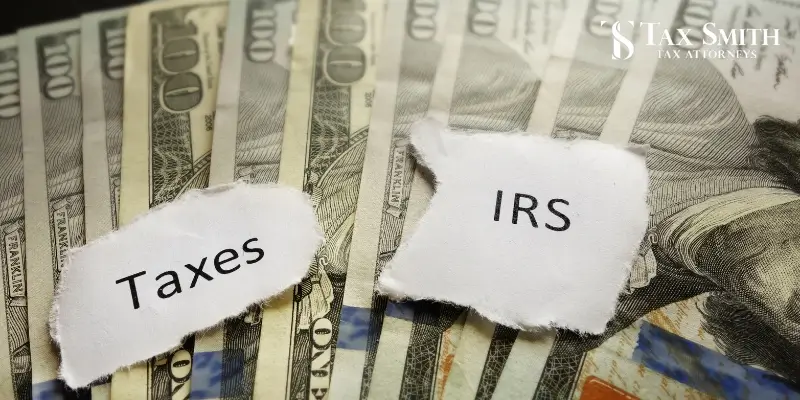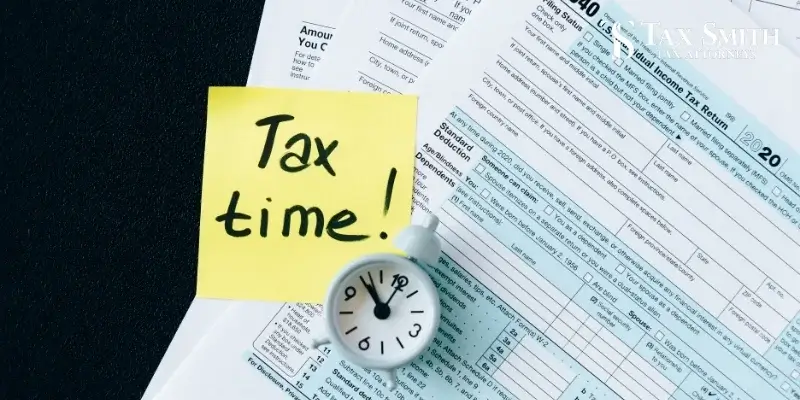1548 The Greens Way – Ste. 4 Jacksonville Beach FL 32250
What Happens If You Miss the IRS Tax-Filing Deadline in Florida?
It’s not too early to look ahead to the 2025 tax season. However, for many taxpayers in Florida dealing with disaster, navigating this process is not a priority. Many taxpayers wonder, “What happens if you miss the IRS tax-filing deadline in Florida?” Luckily, the IRS has provided extensions for those who have been affected by Hurricanes Milton and Helene. If you were not affected, it is important to know when you can file for an extension.
Taxpayers should be aware of updated deadlines, what they can do to address their tax debt and the consequences of failing to file. A professional tax attorney Jacksonville, FL who understands tax codes can help taxpayers significantly as they navigate tax-filing deadlines in Florida.

What Should I Do If I Missed the Tax Deadline?
If you missed the tax deadline, either for the original due date or a valid tax extension, you should file as quickly as possible. This mitigates monthly penalties and interest. Paying as much as you can, even if it is not the full amount, can prevent specific penalties. Even if you don’t owe taxes, it is still important to file your return. If you don’t, you will not receive any potential tax refunds, and you may see certain penalties from the state agency.
If you are unable to pay your taxes at all, there are other options to potentially mitigate or settle your debt. It’s crucial to work with an experienced tax attorney to determine your options.
Tax Extensions
You can file for an extension before your tax return is due. This gives you six additional months to file, but it does not give you more time to pay. If you were affected by a disaster, you automatically qualify for more time to file, although it is less than six months. You do not have to file an extension in this case.
Penalties for Not Filing Your Tax Return
The two primary penalties you will face for not filing your tax return are the failure to file and the failure to pay penalties.
- Failure to File: This penalty applies when you do not file your tax return by the date it is due. The penalty is 5% of the tax you owe, charged each full or partial month that your return is unpaid, but it will not exceed 25%. This means you will be penalized for five months. It is based on the original due date of the return, not any extension date.
- Failure to Pay: This penalty applies if you do not pay your tax when it is due. It is also a percentage of your unpaid debt. This penalty will not exceed 25% of the unpaid taxes. The exact calculation will depend on whether you failed to pay the tax that was shown on your tax return or if you failed to pay a tax that you didn’t report on your return.
If you owe both penalties at the same time, the failure to file penalty is reduced by whatever the failure to pay penalty is, not exceeding 5%. Although the failure to file a penalty will hit the 25% limit after five months, the failure to pay the penalty does not end, as it will continue until your unpaid taxes are paid in full.
Can You Avoid Unpaid Tax Penalties?
You could abate certain penalties if you have a good reason. When you request penalty abatement with the IRS, the agency will review all the facts of your unique case and determine whether you acted in good faith. For failure to file and failure to pay penalties, a reasonable cause for late or unfiled payment may include:
- A natural disaster, civil disturbance, or fire
- Being unable to obtain records to file accurately
- Unavoidable absence, serious illness, or the death of the taxpayer or close family member
- Delay of an electronic payment or filing due to a system error
Lack of funds is not an automatic qualification for penalty abatement, but the cause of your lack of funds may be. If you were affected by Hurricanes Milton or Helene in 2025, there is an IRS extension.

FAQs About Florida IRS Tax-Filing Deadline
What Happens If You File Taxes Late in Florida?
If you file your taxes late in Florida, you will likely see penalties for failing to file each month that you didn’t file, and interest will accrue on your debt. This is the case for both state and federal taxes. However, when there are unique circumstances, such as a disaster at your address, you receive automatic relief. There are other situations where you can request penalty abatement for good cause, such as illness or an inability to secure needed records.
What Happens If You Miss the IRS Filing Deadline?
If you miss the IRS filing deadline, you may see penalties and interest accrue. For taxpayers in Florida, the 2025 deadline for filing your IRS tax return is extended to May 1st if your home or business was in an area affected by a hurricane. Tax deadlines from October 5th, 2024, to May 1st, 2025, may be affected. An experienced Florida tax attorney can help you prepare your tax return or manage other tax filing needs.
Is There a Penalty for Filing Taxes Late If You Don’t Owe Anything?
There may be a penalty for filing taxes late, even if you don’t owe anything. In Florida, there is a minimum penalty each month, regardless of whether it is shown that you owe no tax. For federal late filed taxes, the penalty is a percentage of your unpaid taxes, so if the unpaid amount is $0, this particular penalty does not affect you. However, if you are owed a tax return, failing to file will cost you these benefits.
Is the Florida Tax Deadline Extended?
Yes, the Florida tax deadline is extended due to disaster circumstances from Hurricane Milton. This applies only to locations that were affected by the hurricane. Taxpayer deadlines on or after October 5th are extended to May 1st. This filing deadline affects some of the following:
- Individual and business taxpayers with 2024 tax returns due in March or April 2025
- Taxpayers who would normally make estimated quarterly payments on January 15th and April 15th, 2025
- Quarterly payroll and excise taxes typically due on October 31st, 2024, January 31st, and April 30th, 2025
Finding Professional Support
If you need help navigating unpaid taxes or preparing to file upcoming returns, contact Tax Smith Tax Attorneys today.
Locations We Serve
- Alabama
- Arizona
- California
- Colorado
- Connecticut
- Delaware
- District of Columbia
- Florida – HQ
- Georgia
- Idaho
- Illinois
- Indiana
REQUEST A CONSULTATION
Please fill out the Contact Request Form and a Tax Attorney/Paralegal will call you
to discuss legal representation or to schedule your free initial consultation




